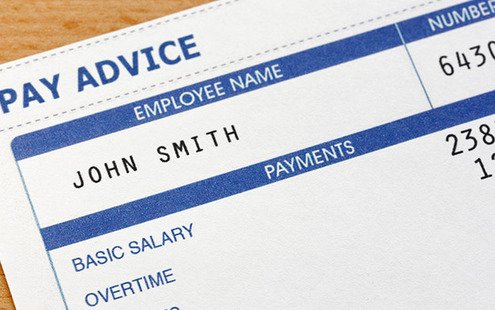Blog
What does the law say about payslips?

Issuing payslips is normally a routine process and you may not give a lot of thought to the legislation behind it all.
In fact, the law imposes strict obligations on employers regarding what must be displayed in payslips.
What right does the law provide?
The law states that an employee has the right to a written itemised pay statement by their employer on or before payday.
Do I need to give it to everyone at my organisation?
This right is provided to employees. It does not extend to workers, contractors or freelancers.
What should it include?
The payslip, which can be provided electronically or in printed form, must include the following information:
- the gross amount of wages or salary
- the amounts of any variable and any relevant fixed deductions and the purpose for that deduction
- the net amount of wages
- where different parts of the net amount are paid in different ways, the amount and method of payment of each part.
Employers can put more information on their payslips, for example, you may include the tax code, tax period or National Insurance number.
Employers must also explain any fixed deductions, for example, trade union subscriptions. You may do this by itemising this clearly on the payslip or you may provide the employee with a written standing statement before the first payslip is issued.
New Legislation
New government legislation that will require all employers to provide an itemised payslip comes into effect on 6 April 2019. Don’t get caught out with itemised payslips.
What is a standing statement?
The standing statement lists the amount of each fixed deduction, the reason for the deduction and at what times the deduction will be will be made. By providing this written standing statement, the pay slip can just show the aggregate total of fixed deductions for the relevant pay period. The statement will be in effect for 12 months. After this, it will need to be reissued by the employer, detailing relevant amendments.
If the statement does have to be amended, it can be done by you providing the employee with written notice.
What wage deductions can I make?
The law clearly specifies the circumstances in which an employer can make deductions from wages. It allows:
- Authorised by Statute, for example to pay income tax, National Insurance or student loan repayments.
- Set out in the worker’s Contract of Employment, for instance where the employer has a contractual right to deduct money in repayment for a loan.
- Permissible due to the worker providing their written consent, for example the employee has agreed to make pension contributions.
- As a result of an overpayment of wages.
- Due to the fact that the worker has taken part in a strike or industrial action.
- To fulfil the terms of a court order.
If you have any more questions on this topic, for example, if you want to switch from paper to electronic payslips, your Employment Law adviser is one simple call away.
Do you need support?
Speak to us for an honest, no obligation chat on:
0345 226 8393 Lines are open 9am – 5pm
